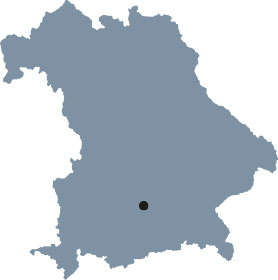Mobilization and Representation under Adverse Conditions
Parties exist not only in representative democracies, but also in regimes dominated by authoritarian incumbents and influential economic actors ("oligarchs"). Focusing on authoritarian Russia on the one hand and the hybrid democracies of Ukraine and Moldova on the other, the junior research group investigates the conditions of existence of parties and asks whether they can represent the interests of citizens despite systemic barriers.
| Place of research | Ludwig-Maximilians-Universität München |
| Association | Elite Graduate Program „East European Studies“ |
| Project duration | 2023 to 2029 |
| Group leader | Dr. Jan Matti Dollbaum Contact the group leader |
| Further information | Website Mobilization and Representation under Adverse Conditions |
Parties in war and authoritarianism
Even in representative democracies, the function of parties to translate the preferences of citizens into policies is sometimes impaired. This is exacerbated where authoritarian and informal practices systematically distort political competition – or eliminate it altogether. In such contexts, the existing literature sees parties primarily as an instrument of the powerful to stabilize authoritarian rule or to enforce oligarchic interests. Nevertheless, there are examples of successful mobilization of voters and activists and even of successful representation of societal demands.
On the one hand, the Junior Research Group examines parties in the patronal democracies (i.e., democracies characterized by a high degree of informality) of Ukraine and the Republic of Moldova. It also examines the consequences of the Russian war of aggression for domestic politics. Second, it explores how Russian opposition parties have emerged as pillars of the authoritarian regime since the 1990s – and asks whether they can nevertheless have a future as instruments of political representation.
The results of the studies on Moldova and Ukraine will be connected to the literature on parties in East-Central and Western Europe, while the studies on Russia will find their way into comparative authoritarianism research. In this way, the group also examines to what extent the term "post-Soviet" still represents a meaningful designation for a region that is increasingly differentiating politically and socially more than 30 years after the collapse of the Soviet Union.


Like few other programs in the German research landscape, a International Junior Research Group within the Elite Network of Bavaria allows to work on a complex and socially highly relevant research question in a concentrated and extensive way.
Dr. Jan Matti Dollbaum
It cooperates closely with the Elite Graduate Program „East European Studies“.


